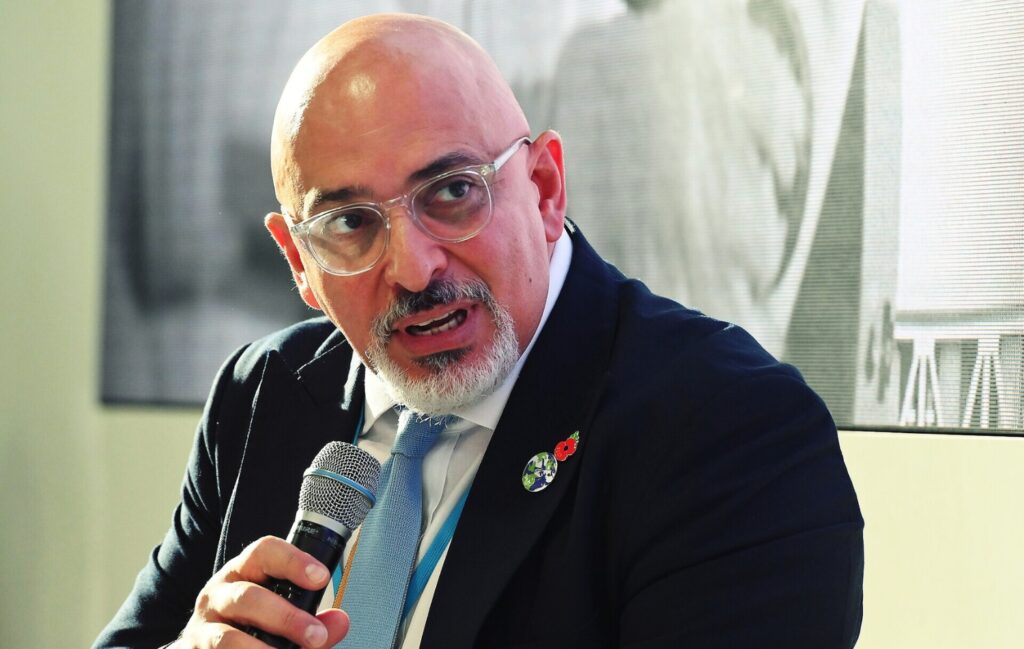Councils across the UK have committed more than £2 million to tackling climate change in response to declarations of a “Climate Emergency”, an investigation by DeSmog can reveal.
While many councils have declared a climate emergency over the past year, the precise implications of the commitments have so far been vague. Most councils are still working out the costs associated with plans to reduce local emissions, with some already signalling their intent to commit a portion of the next budget to the cause.
DeSmog sent a questionnaire to 94 councils listed to have declared a climate emergency, asking what actions they have taken since the declaration, and whether they had allocated additional funding to implement these proposals. 39 councils responded to the questionnaire.
11 of the 94 councils DeSmog contacted said they had already committed funding to tackling the climate emergency. Others were still in the process of costing their intended climate actions, or had plans to include it in next year’s budget.
Like our investigations? Please support DeSmog UK by becoming a patron today!
Money
Local authorities have fallen on hard times in recent years, with Conservative-led governments imposing an austerity drive. A recent report from the Institute for Fiscal Studies, an independent economics think-tank, showed that council spending on local services has fallen by more than a fifth since 2010.
“There is no money to invest in anything. There is only money to keep things going the way they are,” says Kevin Frea, deputy leader of Lancaster City Council, which has committed £70,000 to setting up a citizen’s assembly and employing a new staff member since declaring a climate emergency. “All of the things that councils are looking at also have to be justified in financial terms.”
Some councils have nonetheless dedicated significant additional funding to support new actions to target climate change following the declaration of a climate emergency. DeSmog specifically asked councils to disclose money that had been allocated in response to their declarations of climate emergency – these sums do not necessarily encompass the pre-existing investments that councils were making towards tackling climate change more widely.
Of those contacted, Cornwall Council has devoted the most additional money to tackling the climate emergency, and has the most detailed spending plans for the years ahead. Following its declaration, the council committed £460,000 on recruiting a team to develop an action plan, and another £500,000 to support the implementation of projects.
These funds came out of Cornwall’s General Fund – a pot of cash currently amounting to around £36 million that can be used to deal with unforeseen issues throughout the year – and were additional to the £16 million that the council has already committed to spending on renewables and climate change.
It plans to spend an increasing sum on climate emergency-related costs in the next two years, which will be allocated in budget setting process for those years.
Other councils that have already committed more than £100,000 in relation to declaring a climate emergency include (ranked by amount pledged):
- Devon County Council: £250,000 to develop the Devon Carbon Plan and use and use a Citizens’ Assembly.
- Oxford City Council: £200,000 to set up a Citizens’ Assembly on Climate Change and to “support detailed planning work on how the Council’s own carbon footprint – and that of Oxford itself – can be reduced to net zero.”
- South Cambridgeshire District Council: Although a little vague about whether the money was directly related to its climate emergency declaration, a spokesperson said that the council had committed £185,000 to tackle climate change since November 2018, in addition to the £2.1 million it had already budgeted to spend on renewable energy.
- Calderdale Metropolitan Borough Council: £180,000 over three years has been written into the budget “to support our response to the climate emergency”, with other council-wide funds available “for numerous projects and initiatives which address the climate emergency”.
- Mendip District Council: £100,000 to “support the delivery of agreed actions” and to recruit a Climate Change and Resilience Officer.
Three councils had committed smaller sums of money: Lancaster (£70k), Three Rivers District Council (£50k) and Lambeth Borough Council (£85k).
The total sum of money committed doesn’t, however, tell the whole story. As a portion of their overall spending, South Cambridgeshire and Oxford City Councils came out on top, with almost one percent of their annual 2018/19 budgets committed to tackling the climate emergency. Lambeth’s allocation, on the other hand, represented just 0.03% of its total budget.
New climate targets
Many councils had set a new emissions target in response to declaring a climate emergency, the most common of these being an aspiration to become carbon neutral by 2030. This is more ambitious than the current national government target to cut emissions to net zero by 2050, and, for many local councils, such an ambitious goal may prove challenging.
“It is not yet clear whether it is an achievable goal, and it may prove to be impossible,” write Cornwall council officials in one report. “However, it is an ambition the Council is prepared to pursue in good faith and in endeavouring to achieve the goal will take us further than backing off this challenge.”
Nonetheless, a few councils have pledged to go beyond the standard goal of carbon neutrality by 2030. Tower Hamlets Borough Council leads with a goal to be either zero carbon or carbon neutral by 2025 (zero carbon is harder to achieve than “carbon neutral” or “net zero” as reductions have to be made locally and cannot be offset). Manchester City Council has explicitly pledged to become zero carbon by 2038 – a later date but a more challenging target. Richmond and Wandsworth Councils specified they would become zero carbon by 2050.
Nottingham City Council also has an earlier target, with plans to become carbon neutral by 2028 – although this only includes carbon dioxide. The council plans to set targets for other greenhouse gases, such as methane, “in line with national net-zero approaches”. Herefordshire County Council, in addition to its aspiration to be carbon neutral by 2030, plans to change its energy supply to 100% renewables.
Others had less ambitious targets. Durham County Council only plans to reduce the council’s own emissions by 60% by 2030, with a long-term goal to make County Durham carbon neutral by 2050. Kirklees Metropolitan Council is only “working on targets to align with national target of net zero by 2050”. South Cambridgeshire did not set a new target as part of its climate emergency declaration, although it is pursuing the more ambitious zero carbon target by 2050.
There is still substantial uncertainty about what these pledges mean in practice, with many carbon reduction activities outside the control of local authorities. A briefing by the Local Government Association highlights that councils’ ability to lead is limited by financial pressure, a lack of devolved powers, difficulties in monitoring progress, and limited government support.
Many councils have recognised their limitations, and are applying their targets only to council operations, while working with local businesses, hospitals and other organisations to reduce emissions elsewhere.
Others see their target as applying to the whole authority area, while recognising that they are unlikely to succeed without help from the central government, particularly in light of Brexit. Some, such as Haringey Borough Council, have written to the central government to ask for more powers and resources in light of the climate emergency.
“We’ve had a lot of money from the EU in the past, and that’s probably going to dry up, so we need the government to step up and provide alternative means of funding,” says Sally Longford, deputy leader of Nottingham City Council, which sees its carbon reduction target as applying to the whole city.
“We also need the government to step up in terms of the planning regulations so we can force developers to improve the sustainability of new buildings. We need them to set high standards and invest in renewables. We can’t do it on our own, and there are things we can’t tackle at all, that are beyond our control,” she says.
Taking action
As well as setting new targets and allocating funding, many councils have outlined a range of actions to reduce their emissions, or are actively drawing up plans to do so.
For some councils, this has meant mainstreaming climate action across the board. North Somerset Council, for instance, now requires any decision papers to include a section on what the climate emergency means for its proposed policies or projects. Bath and North East Somerset Council has created a cabinet portfolio for the climate emergency, which means that there is now a councillor explicitly responsible for handling the issue.
Some councils are now holding additional training and workshops on how to deal with the climate emergency, or have established working groups.
Kirklees Council has a Climate Emergency Working Party, which meets monthly. South Oxfordshire District Council has appointed one of its councillors as an “Environment Champion”. Richmond and Wandsworth Councils will have two climate change summits, and Newcastle City Council has promised a climate convention – although was recently criticised for not setting a date. Herefordshire Council has promised a seminar for councillors to discuss how to reduce the county’s carbon footprint.
Read more: First UK Council to Promise Full Divestment Still Has Tens of Millions Invested in Fossil Fuels
Several councils have committed to holding a citizens assembly on climate change, bringing together local people to discuss a range of issues relating to global warming. Oxford has claimed it is the first city in the UK to actually hold a citizens assembly on climate change, with the meeting taking place over two weekends in September and October (Camden Council, in north London, also recently held a climate assembly, but it is a borough rather than a city).
The subject of adaptation, however, has received little attention in climate emergency planning – despite evidence from the Committee on Climate Change that flooding, high temperatures, water shortages and other climate impacts will hit the UK hard over coming decades.
Only a handful of councils mentioned any action to adapt to the impacts of climate change. Ards and North Down Borough Council and Nottingham City Council were alone in developing plans to deal with climate adaptation. Calderdale Council has plans to enhance natural flood management – perhaps unsurprising, given the catastrophic damage inflicted upon the West Yorkshire borough when the River Calder burst its banks four years ago.
Ultimately, whether a council acts on its declaration of climate emergency will depend on how serious its councillors are – and whether the public is holding them to account, says Frea. “It’s a starting point. It’s something to build on. Councils pass declarations all the time and don’t do very much. There needs to be momentum behind it.”
Main image: Tomm Morton/Public Domain
Subscribe to our newsletter
Stay up to date with DeSmog news and alerts






